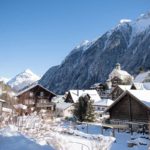Time changes everything, and ski holidays are not immune to change.
The industry has constantly adapted to financial, environmental and political factors – and it is bound to happen again.
The real question is how it will change. In this article, we will try to make a few educated guesses.
Chalet Holidays Need to Adapt… Faster
The traditional ‘chalet holidays’ model has already undergone some changes, mainly regarding catering and delivery services, as well as staffing and ski hosting.
Forty years ago, ski holidays were famed (or infamous) for their simplicity, awful food and clueless staff.
Much has changed since, as visitors became more demanding.
This evolution must keep up, before demand, which has been steady over the last years, drops.
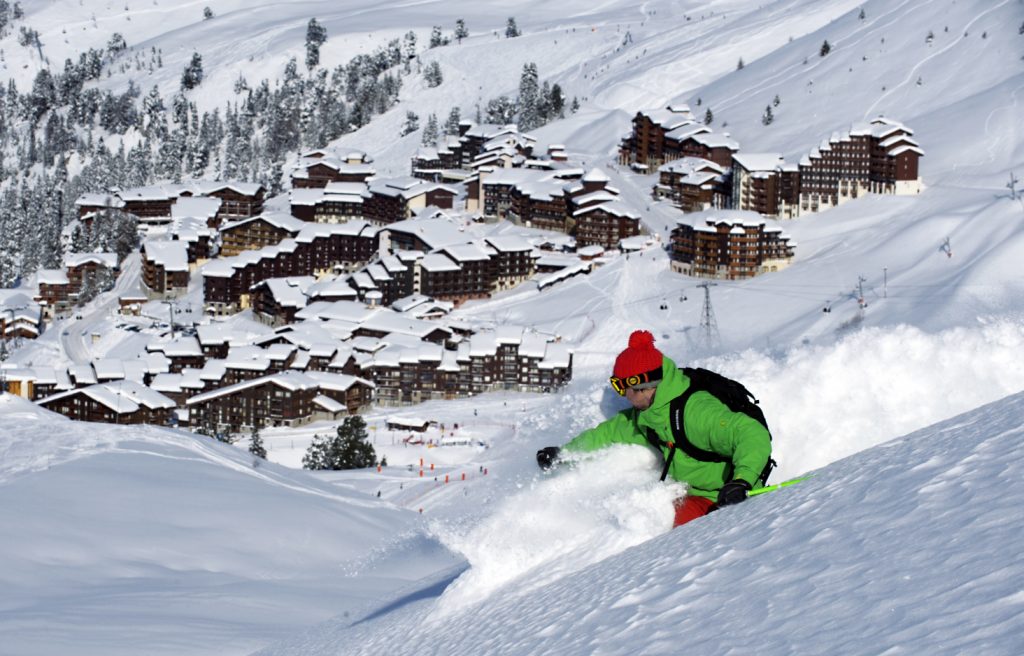
La Plagne skiing
We’ve seen several reports this year from various UK ski holiday operators that have reduced significantly the number of chalets they offer, mainly because of the de-valued pound and staffing cost surge in France and Austria.
Brexit is also posing unknown challenges for ski operators, with on-going discussions taking place regarding the use of British staff in overseas chalets.
All this practically means that it will be more difficult for Brits to book a chalet holiday – and it will also cost more than it once did.
Conclusion? The chalet holiday industry must adapt even more and boost its competitiveness service-wise in order to survive.
Self-Catering is Gaining Ground
Reasonably enough, with all this financial uncertainty, British holidaymakers will try to find other forms of holidays to enjoy their winter sports – and self-catering has already gained ground.
While the catered chalet remains the most popular choice for most Brits, there are clear signs of a significant drop in capacity in the market, and a corresponding surge in self-catering packages.
The time when self-catered apartments were just a few square metres with sofas and bunk beds for sleep is long gone.
Now, self-catering involves whole apartment buildings with all sorts of amenities – even pools!
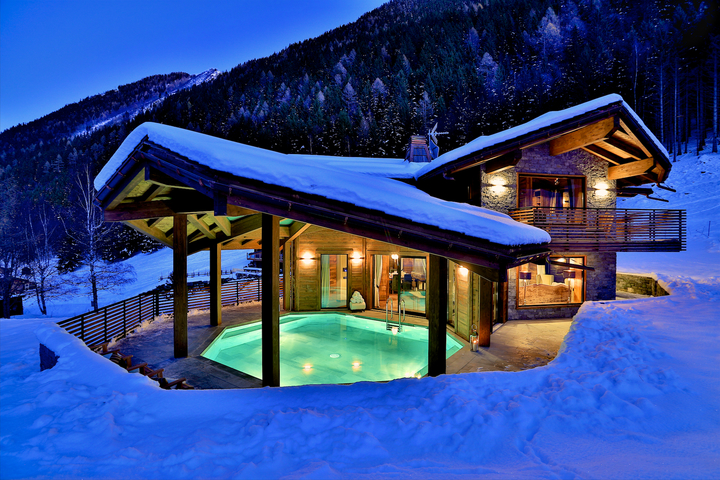
Luxury self-catered ski accommodation
Coupled with food delivery services – bringing frozen pre-cooked food to the guests at great prices – self-catering has become much more care-free and flexible, since guests do not have to worry any more about shopping and cooking, and have more time to spend on the slopes.
Train vs Plane
Modern-day travellers are much more sensitive about the environment and are willing to change their travelling habits to minimise their carbon footprint, even if that means some sort of inconvenience or delay.
Train travel to the Alps can be a treat. Many Brits that have recently tried them find the journey even nicer than the flight, offering great views and quality time with family and friends.
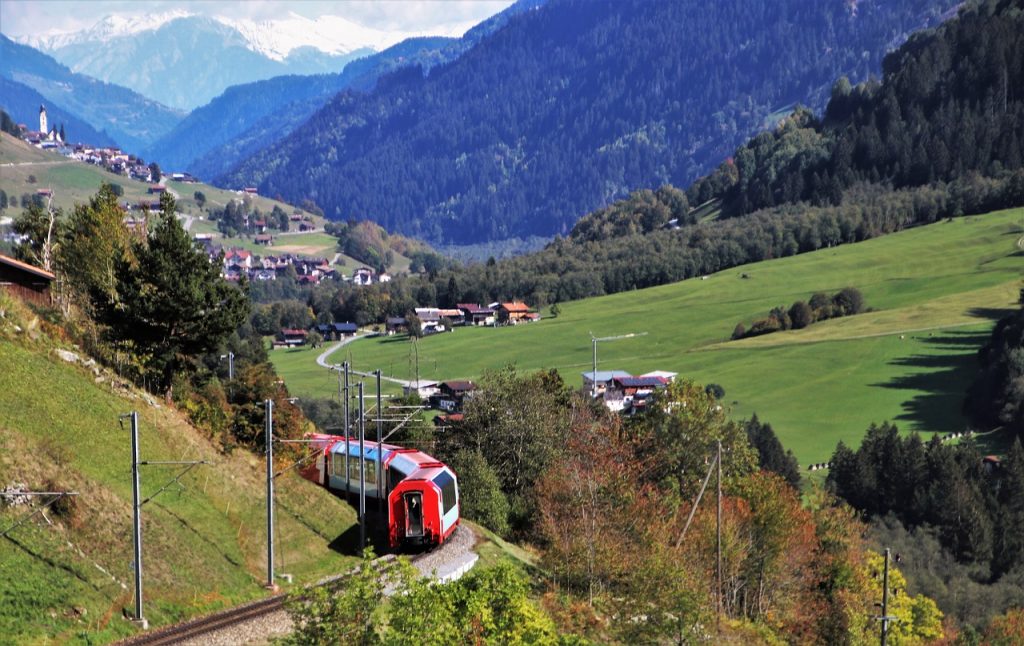
Scenic rail travel en-route to the Alps
Some even describe it as being part of the holiday itself.
In some cases, train travels are faster too, ridding the traveller of long-lasting check-ins and waiting at the airport.
Many people travel by plane simply because they have no alternative.
A prime example is Eurostar’s ski train service to the Alps, which sells out its seats literally within minutes during the high season.
Train travel is surely a sector that will have to change rapidly during the next years, with train companies and local authorities finding ways to cater to the great rise in the number of train passengers.
Growth of Niche
There is no doubt that the big players in the ski industry, such as Val d’Isère, Tignes, Les Arcs, Méribel, Courchevel, and La Plagne, still hold sway in the market – and for a good many reasons too.
Snow-sure, with top-notch accommodation, and excellent lift infrastructure, they deliver what they promise and that’s why they remain at the top of the list of the most popular skiing destinations.
On the other hand, the interest for less known ski resorts is slowly growing.
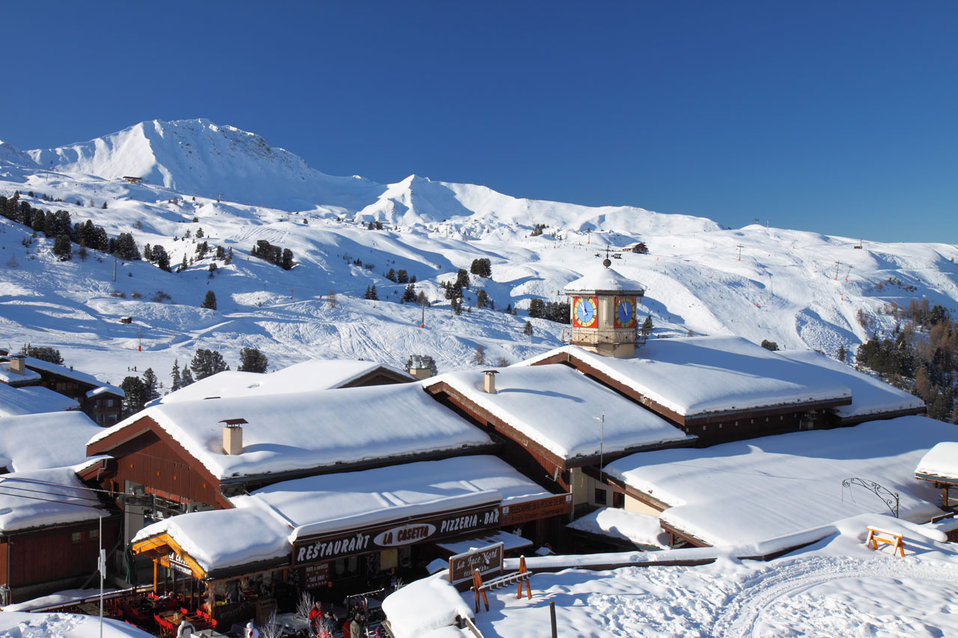
Belle Plagne village – Smaller sister of La Plagne in Paradiski
The number of holidaymakers from the UK that search for smaller resorts, with fewer people and more economical packages, is steadily rising.
Several backdoor resorts across France, Austria, Switzerland and Italy, have improved their facilities and infrastructure to be more competitive.
Similar efforts have been made in non-Alpine regions too, such as Georgia, Norway and Sweden.
Small resorts tend to be more family-friendly, and often prove more appealing to inexperienced skiers who don’t need hundreds of km of pistes to master the basics, or to skiers and snowboarders who love to couple their favourite winter sport with sightseeing and visiting new places.
Carve Your Own Ski Holiday
Today’s holidaymakers are more spoiled than ever – and the only antidote to their ever-growing demands is flexibility.
The 21st-century traveller will spend hours on research trying to tailor his or her holidays to specific preferences and needs.
One-for-all deals seldom cut it in a competitive market.
People love having plenty of options, especially regarding food and recreation, despite the fact that they go to a winter sports resort specifically for skiing or snowboarding.
Resorts that also offer family-friendly activities, adventure pools spas and wellness facilities attract more and more visitors by the year.
Flexibility in lift passes options becomes all the more important too, allowing holders to devote certain days to activities other than skiing or snowboarding.
Ski holidays tend to become a much more diverse experience, especially for families travelling together.
Most resorts already got the message and try to supplement their facilities with off-the-slope activities, as well as invest in cross-country skiing, walking or biking trails, festivals and cultural events.
Fraud & Social Credibility
The growing interest in self-catering, flexible holiday options, less-known resorts etc. sets an ideal scenery for frauds that wish to take advantage of the situation.
Promising is much easier than delivering, especially with small independent companies and tailor-made packages.
Instances of Airb’n’b fraud, with fake chalets or other types of deception, are increasing every year.
In some cases, people arrive at respectable and lavish chalets expecting to spend the nicest winter-time holidays of their lives only to find out that the actual owners know nothing about their ‘booking’!
A few months before the high season in 2018, fraudsters set up websites with an array of accommodation options at great rates – all fictitious of course.
An example of such a company is shown below:
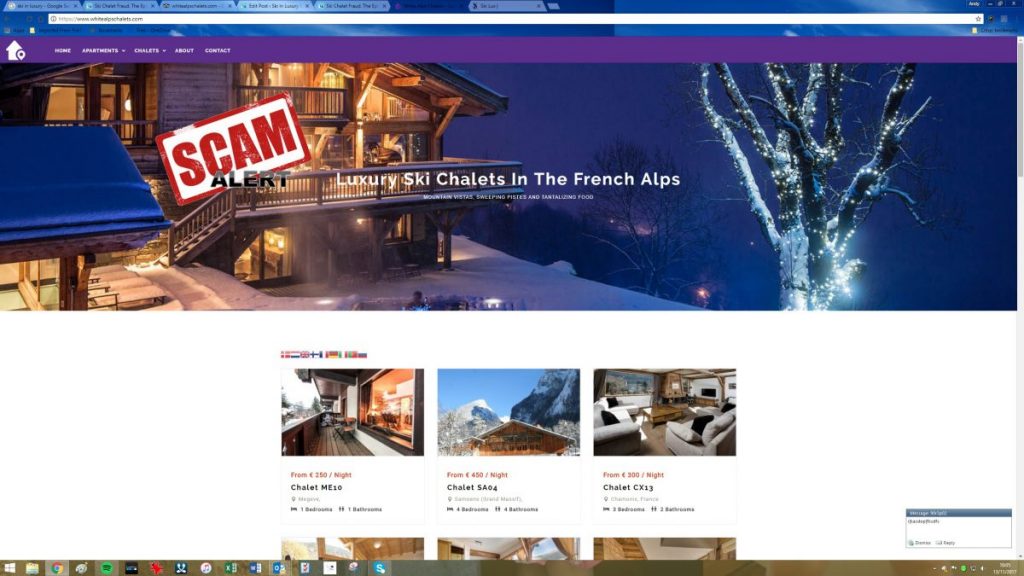
Fraud website whitealpschalets.com
This business even ran Google Ads:

The site appearing in Google Ads
It seems you can trust only the sites which are at the top of the organic Google listings as these have to be earn’t not bought!
These are just a few reasons why veteran skiers and experienced winter-time holidaymakers warn less experienced travellers to book only with well-reviewed and respectable travel agencies and operators.
Research, research, research…especially if you have no prior knowledge of the destination or region you plan to visit.
Use Trip Advisor, Trustpilot and Feefo to review past-customer feedback; and social media sites such as Facebook and Twitter to see if there is an active following and real engagement.
This does not mean that small independent chalets operators are to be avoided– far from it.
But due dilligence is of the essence.
Understanding the reasons behind the expected trends can help tp alleviate the impact of these changes.
Preemptive action could cven turn these issues in the industry’s favour.




